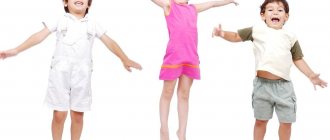Adolescent psychology is a term that is interpreted ambiguously. Since, on the one hand, it implies a science that studies the characteristics of the behavioral patterns of children who have entered the pubertal stage of formation. On the other hand, it directly means the essence of the concept under consideration - age-specific behavior, features of mental processes.
Adolescent psychology is considered the most controversial phenomenon, characterized by instability and the appearance of notes of rebellion. The teenage stage is marked by the baby's exit from childhood. Here yesterday’s baby begins to look into his own inner world and learns new things about his personality. At the described stage, critical thinking is formed against the background of rebellion and denial of habitual behavioral patterns.
Features of adolescent development
Puberty is the most difficult of all stages of child development. The stage under consideration is also called transitional, since the so-called “transformation” of a child into an adult occurs, the transition from childhood to maturity. This transformation affects all aspects of a teenager’s life, his anatomical and physiological formation, intellectual and moral maturation, as well as all subtypes of activity, namely: gaming, educational and work.
At the stage of puberty, the circumstances of a child’s existence and his activities change significantly, which leads to the need to transform mental processes and break old, previously established forms of interaction with peers and adults. Educational activities are complicated by increased demands, increased workload, and the emergence of new sciences that need to be systematically studied. All this requires mental processes at a deeper level: thorough generalizations and reasoned evidence, understanding of abstract connections between objects, and the development of abstract concepts.
In addition, the teenager’s principles, worldview, social position, and position among classmates undergo significant transformations. The child begins to play a more significant role in the school environment and family. In this regard, he begins to face more demands from society and parents, which become more serious and thorough in content.
In the process of complex educational activities, the intelligence of adolescents noticeably improves. The content of the sciences learned at school, the modification of the nature and content of educational activities develop in them the ability to independently think, generalize, reason, analyze, compare and summarize.
In addition, the described stage in the maturation of a child’s personality is also marked by puberty, which seriously complicates the passage of the developmental stage in question.
Other milestones
Many 14-year-olds show great interest in earning money, but they usually cannot get a formal job. You can help your teen find odd jobs that will help him earn some money, such as mowing the lawn or babysitting.
By age 14, teenagers should be able to do all the basic chores you do around the house. You might consider paying your teen to do jobs that you could pay someone else to do, such as mowing the lawn or washing the car. Paying your teen can be a good way to start teaching them valuable lessons about money.
Psychology of teenage boys
The adolescence of the sons of Adam consists of the transformation of boys into adult husbands. At this stage, biological maturation occurs, which coincides with the emergence of new interests and disappointment in former hobbies.
Young teenagers are leaving their childhood, there is no understanding of what will happen to them next, so they feel discomfort.
During puberty, boys experience active growth: hormonal levels change, the voice “breaks,” and the skeleton grows.
It is this stage that is manifested by the extreme intolerance of young men and their reluctance to help those who are different. For teenage boys, their appearance becomes important, so if there are problems with their appearance, then there will be trouble. Because there will definitely be boys who are ready to laugh, and others who are ready to support them in this fun.
Such teenage problems are not uncommon. They are an important psychological basis of the period under review. Due to rapid hormonal changes, teenagers often develop acne and gain weight. Boys suffer from uncontrollable erections.
In addition to physical transformations, sexual and hormonal metamorphoses, other changes occur with the child. His views on existence change, questions that previously were of no interest to him begin to concern him. The danger of this stage lies in exaggerating one’s own abilities, since to yesterday’s children everything seems more rosy, accessible and simple.
This age is characterized by the emergence of a “gap” between common sense and emotions. Underdevelopment of the prefrontal zone during puberty explains the emergence of major problems in behavioral response. Therefore, teenagers are often unable to correctly analyze the situation only due to the immaturity of their nervous processes.
Search for authority
At all times, fourteen-year-old boys tried to find an example to follow. At this time, it is very important for him to figure out whether his parents are right or wrong, whether they can trust their statements and the truths that were instilled in him since childhood. The teenager chooses his own authority. To be like their idol, teenagers change not only their clothing style, but also their entire behavior. At this time, it is very important for parents to unobtrusively push him towards the right choice. This must be done in such a way that the teenager has no idea who contributed to the acquaintance he needed. The boy himself must feel the need for such communication. He cannot follow the example of those whom he does not like, in whom he does not feel a friendly disposition and trust.
Psychology of teenage girls
During puberty, intensive growth of the body and hormonal changes occur. Therefore, many girls begin to gain weight, their bodies become rounded, becoming more feminine.
Since the body does not have time to quickly adapt to the ongoing metamorphoses, it has to work hard. Hence, girls experience increased fatigue, drowsiness and apathy. Chronic illnesses may also worsen or new ones may appear.
The condition of the skin may worsen due to an increase in the production of estrogen and progesterone, which also negatively affects the emotional state of the child. This stage is also marked by the appearance of the first menstruation, which is often accompanied by pain and weakness.
All processes occurring in the body inevitably affect the children's nervous system. In addition, far-fetched shortcomings such as excess weight, problem skin, and the appearance of sweat odor negatively affect the self-esteem of a teenage girl. This is fertile ground for the emergence of various complexes in a teenage girl.
Due to the increased production of sex hormones, the emotional background of girls is unstable, its various forms can change every second - from apathy to joyful causeless excitement, from tearfulness to obvious aggression.
Teenage girls are often depressed. They are convinced that everything is bad for them. Girls are often prone to tearfulness. They often feel hatred and irritation towards those closest to them.
Their memory deteriorates, their concentration decreases, and their ability to express their thoughts is impaired.
Girls who are at the described stage of growing up often resemble three-year-old children in their own actions and words. You can often hear from them: “I myself,” “don’t meddle with me,” “leave me alone.”
We will help you build relationships with peers
Communication among peers becomes of paramount importance. The teenager implements methods of interaction and goes through the stages of social relationships. The purpose of communication is to realize the need for acceptance, recognition, and gaining authority. Joint comprehension of the world is of particular value.
How to raise a 14-year-old daughter to maintain a good relationship? Adults should be tolerant of his friends. Any attempt to speak ill of a comrade will turn into a riot. It is advisable to give a neutral assessment to a teenager's friend. The freedom to choose people according to their spirit is perceived as the right to adulthood. Relationships with peers are friendly. By the end of adolescence, friendships appear.
In a teenage team there is a hierarchy, there is a leader. Groups live by the “code of honor” they created. Parents should pay close attention to what kind of environment their teenager prefers. Bad company is a signal that there is discord between the adults and the child. Swearing and prohibitions will not bring results. The best way out is to change the attitude towards the teenager and allow him to be an adult.
Problems of adolescence
The complication of real trends in social advancement, the acceleration of the rhythm of existence, and the preference for a hedonistic way of life have an impact on the formation of modern teenagers. The current circumstances cause passivity in children, aggression, depressive moods, moral indifference and create obstacles to the identification of their own moral values and comprehension of the meaning of their own existence.
That is why the psychology of modern adolescents, in comparison with the psychology of early periods of formation, is characterized by specificity. After all, the dynamism of existence and its attitude towards pleasure as the highest value is reflected in the hearts and consciousness of new generations.
The main problems of adolescence include:
– anger in children (the problem lies not in the very presence of this feeling, but in the inability to control it), manifested in passive-aggressive behavioral reactions in order to throw the adult environment or parents out of balance, and is characterized by unawareness, being the result of hushed anger;
– emotional instability;
– suicidal tendencies, which are caused by low self-esteem, parental indifference, feelings of loneliness, and depressive moods;
– homosexuality, which consists of intimate attraction to subjects of the same sex;
– teenage depression, expressed by a sad, depressed mood, pessimism, a feeling of worthlessness, retardation of movements, monotony of ideas, decreased motivation, various somatic abnormalities;
– personal self-determination, which includes social self-determination, family, professional, moral, religious and life.
Manifestation of a phantom sense of adulthood
The body of a 14-year-old teenager has almost all the functions of an adult. And the teenager, noticing these external relationships, makes his first attempts to associate himself as an adult. But the psyche and inner world of a teenager remain childish, and therefore these manifestations are rather phantom.
Very soon the teenager begins to understand that external signs alone are not enough; for the first time he thinks about the possibility of independent existence in society, about his future profession. How to communicate with a 14-year-old teenager so as not to undermine their self-esteem?
Family relationships
When communicating with a child who is at the 3rd stage of growing up, the main thing is not to abuse power. Even though you are a parent, you must give your child the right to choose and listen to his opinion. To properly understand how to communicate with a 14-year-old teenager, you need to remember that this is a living person, and not your toy. Try to behave like a friend in your interactions and be “on par” with your child. He is an equal member of the family and can also participate in discussions and express his opinions. This will make him more open to you and it will also boost his self-confidence.
Search for authority
At a young age, difficulties often arise in finding oneself, and teenagers often find their ideal. A popular singer, a talented actress, or even a kind grandmother can become an authority figure for a child. It is important to let your child know that he or she is a unique individual and he or she should not follow any pre-made template. It is important to analyze the information and absorb the best.
If you are wondering how to communicate with a 14-year-old teenager, remember: the main thing is the teenager’s comfort.
Signs
Some teenagers have no or mild symptoms of the 13-year-old crisis, while others experience a dramatic change in behavior.
Relationships with others:
- conflict;
- opposing oneself to everyone else;
- hostility;
- priority is communication with peers (they run away from home, do not want to spend time with their family);
- passion for virtual communication;
- desire for loneliness, isolation from people (they lock themselves in their room and sit there for several hours);
- confidential heart-to-heart conversations with one or two favorites chosen from the environment.
Behavior:
- emotional imbalance;
- frequent violations of discipline and prohibitions (refuse to perform household duties);
- mood swings;
- hot temper, impulsiveness;
- dissatisfaction, irritation, gloominess.
Internal state:
- increased level of anxiety, restlessness;
- diffidence;
- internal complexes;
- increased demands on yourself (especially on your appearance);
- low self-esteem;
- restructuring of the value system;
- thoughts of suicide;
- intrapersonal conflicts;
- intensive development of self-reflection;
- increased sensitivity to criticism;
- keeping a personal diary.
Cognitive abilities:
- development of abstract logical thinking;
- mechanical execution of exercises according to a given scheme is maintained at a high level, but not everyone copes with creative tasks (write an essay, develop a project);
- passion for music, philosophy, psychology, romance novels and adventures;
- decrease in educational indicators;
- change of hobbies and interests.
Age psychology calls negativism the main new development of the 13-year-old crisis. The teenager perceives everything that happens, everyone around him and himself in a black light, negatively and constantly criticizes. This is due to the formation of self-reflection: he begins to evaluate his own abilities, personal qualities, shortcomings and opportunities against the background of others.
According to statistics, in 20% of cases, teenage negativism is acutely and painfully manifested by uncontrolled emotional outbursts in almost all areas of life. In this case, the child may completely drop out of the family or school for several weeks or months. In 20% of children it is completely absent. 60% of 13-year-olds are potential negativists. They begin to object and conflict only in response to a challenge from the outside (unfair grades from a teacher, betrayal of a friend, excessive prohibitions and restrictions in the family).
You were born in 2006 or 2007
2006 - March 29. The first total eclipse of the sun in the 21st century could be observed in Russia. 24 August. Scientists have stripped Pluto of its planetary status. This decision was made at the congress of the International Astronomy Union in Prague, Czech Republic.
2007 — Genetics have discovered modifications in the human body that are responsible for the development of certain diseases. After DNA analysis, it became possible to identify a predisposition to certain diseases.
2008 - February 17. Kosovo declared independence from Serbia. 8 August. Military operations began in South Ossetia. November 4. Presidential elections took place in the United States. The first black president in the history of the state, Barack Obama, became the head of the state.
2009 — August 17. A disaster occurred at the Sayano-Shushenskaya hydroelectric power station. Hundreds of people became victims. The cause of the problems was a series of shortcomings and a failure in the redistribution of electricity in the power system.
2010 - 18th of March. Russian mathematician Grigory Perelman proved the Poincaré conjecture, which was considered one of the unsolvable Problems of the Millennium. For this, the Clay Mathematical Institute awarded him a prize of $1 million, which he refused. April 10th. A plane crash occurred over Smolensk, in which Lech Kaczynski, the President of Poland, his wife Maria Kaczynskaya, the high military command, Polish politicians, as well as religious and public figures (97 people in total) died. The first living cell was created in which its own DNA was replaced with DNA created artificially. Humanity has received new tools for developing technologies for artificially growing organs.
2011 - 11th of March. In Japan, off the northeastern coast, an earthquake occurred, the magnitude of which reached 8.9. As a result of the earthquake, a devastating tsunami arose, as a result of which over 15 thousand people died, several thousand are considered missing. May 2. Osama bin Laden, the “No. 1” terrorist in the world, the leader of Al-Qaeda, who, in particular, is considered responsible for the September 11 terrorist attack, was killed. September 7. An international charter flight crashed near Yaroslavl. On board the plane was the team of the Lokomotiv hockey club, which was flying to Minsk. 44 people died, one survived. October 31. The seven billionth inhabitant of the Earth was born in Kaliningrad.
2012 - February 21. In Moscow, in the Cathedral of Christ the Savior, a scandalous punk prayer service of the PussyRiot group took place, three members of which were detained by the police. December 1. Russia has led the G20 (G20), a forum of representatives of countries with the most developed economies: Australia, Japan, Argentina, South Africa, Brazil, South Korea, Great Britain, France, Germany, Turkey, India, USA, Indonesia, Saudi Arabia, Italy, Mexico, Canada, China.
2013 - February, 15. A meteorite fell in the Urals - the largest celestial body that collided with the surface of the Earth after the Tunguska meteorite. Because of the “Chelyabinsk” meteorite (it exploded in the vicinity of Chelyabinsk), 1,613 people were injured. February, 15. Asteroid 2012 DA14 flew by at the minimum distance from planet Earth (27,000 km). This was the closest distance in the entire history of astronomy. March 13. The most powerful telescope on the planet begins operating in the Atacama Desert, Chile.
2014 — February 7-23. The XXII Winter Olympic Games took place in Sochi. 18th of March. Putin V.V. signed an agreement on the admission of the Crimean Peninsula and Sevastopol to Russia. This agreement comes into force from the moment of ratification by the Federal Assembly - March 21. October 26. Permanent winter time introduced
2015 - Jan. 7. A terrorist attack took place at the office of the satirical magazine Charlie Hebdo in Paris, based on a caricature of the Prophet Mohammed previously posted in the magazine. 12 people were killed and 11 people were injured.
Mom will teach you to be beautiful
The example of parents is very important for the development of a teenager’s personality. Mom can help in choosing a wardrobe, but not impose her vision. A teenager may have his own concept of beauty and this is normal. You can't criticize your appearance, even if the outfit doesn't suit you. You should praise your choice and offer an alternative. Mom should tell her that a girl at this age should look elegant, that she needs to find her own style, and not chase the “style icons” offered in magazines and the Internet. Clothes and makeup should be appropriate. The choice of wardrobe largely determines your lifestyle.
Stages of growing up
- A child, growing up, goes through three temporary stages.
- The first stage is childhood. It lasts approximately until the age of 11.
- The second stage is early adolescence. Its time period is from 11 to 14 years.
- And finally, the third stage of human maturation is senior adolescence, located in the range from 15 to 18 years.
- Between the second and third stages of growing up there is an intermediate stage, not distinguished by psychologists as a separate, middle stage - from 14 to 16.
Adolescent Psychology - Highlights
Speaking about this category of children, it should be noted that the division according to the stages of growing up is quite arbitrary.
During this time period of his life, a young man begins to gain a new awareness and motivation for his own behavior. Lead them meaningfully.
Psychologists often focus the attention of parents of children in adolescence on this conventional transitional fragment (from 14 to 16 years old) in connection with the changes occurring in them, both physiological and mental.
Because this period, called the stage of personal and professional self-determination, is the most difficult in life for a growing teenager - boy or girl.
The emotional sphere of adolescents and motivation
At this time, the child develops his own individual personal position on all issues and situations. It often does not agree with the views and opinions of adults, including parents, on the same situation, which leads to conflict, which may result in a loss of mutual understanding and contact relationships between them.









